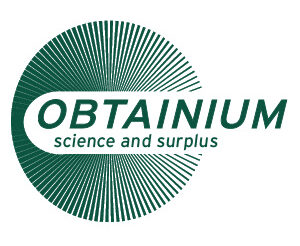The lithium-ion battery market is on the brink of remarkable expansion, projected to surge to a staggering $55.22 billion by
2032. This forecast is not merely a number but a reflection of the transformative changes taking place across various sectors worldwide. With a compound annual growth rate (CAGR) of
13.80% from 2024 to 2032, the market is witnessing a convergence of trends that are reshaping how energy is consumed and stored, particularly through the rising demand for electric vehicles (EVs), advancements in portable electronics, and the integration of renewable energy systems. As we delve into the dynamics driving this explosive growth, we will explore the key factors, regional trends, and major industry players shaping the future of lithium-ion technology.
Key Takeaways
- The lithium-ion battery market is projected to grow to $55.22 billion by 2032, driven by electric vehicle demand and renewable energy storage.
- Technological advancements are improving battery efficiency and reducing costs, fueling market expansion.
- Regional initiatives, particularly in Europe and the Middle East, are significantly influencing the growth of the lithium-ion battery sector.
Market Drivers and Growth Factors
The global lithium-ion battery market is on the verge of remarkable expansion, with the ‘Lithium-Ion Battery Market Report Forecast 2024-2032’ revealing an anticipated market value of approximately $55.22 billion by
2032. This represents a robust compound annual growth rate (CAGR) of
13.80% from 2024 to
2032. Several market drivers are fueling this growth, notably the escalating demand for electric vehicles (EVs), the necessity for renewable energy storage solutions, and continuous advancements in portable electronics. Given their crucial role in powering everyday consumer electronics such as smartphones and laptops, as well as being integral to electric vehicles and renewable energy systems—where they efficiently store energy generated from solar panels and wind turbines—lithium-ion batteries have emerged as fundamental to modern energy infrastructures.
The proliferation of EVs is significantly bolstered by various government initiatives aimed at reducing carbon emissions, thereby escalating the demand for lithium-ion batteries. Moreover, rigorous technological advancements focused on enhancing battery efficiency, increasing energy density, and reducing production costs are further propelling the market’s growth trajectory. The European market is particularly noteworthy, showing a promising upward trend largely driven by ambitious carbon neutrality goals. Leading countries such as Germany and France are at the forefront of production and technology innovations.
In the Middle East, countries such as Saudi Arabia and the UAE are also contributing to the rising demand for lithium-ion batteries through their investments in clean energy projects—this is critical for both renewable energy storage and transportation applications. Notably, Saudi Arabia’s Vision 2030 focuses on sustainability and the expansion of renewable energy, which further drives the local lithium-ion market.
Prominent players in the industry, including BYD Company, Samsung SDI, and Johnson Controls, are playing significant roles in this evolving landscape. Recent initiatives by companies like JSW Group in India and Acciona in Europe underscore the global commitment to augmenting lithium-ion production capacity and fostering innovation. The report comprehensively addresses the diversity of battery types and their myriad applications, illustrating the essential position lithium-ion technology occupies within the global energy framework.
Regional Trends and Major Players
As the demand for lithium-ion batteries escalates, the landscape of major players in the market is evolving rapidly. Companies such as BYD Company, Samsung SDI, and Johnson Controls are leading the charge in innovation and production capacity, striving to meet global needs. The focus on sustainability is also evident among these industry giants, particularly with efforts to enhance battery efficiency and reduce environmental impact. Furthermore, the influx of new entrants, like JSW Group in India and Acciona in Europe, indicates a robust competitive environment fostering advancements in lithium-ion technology. This diverse ecosystem not only emphasizes the significance of established players but also showcases the potential of emerging companies to impact the market through novel solutions and innovative approaches in battery design and manufacturing.
About Obtainium Science and Surplus
Obtainium Science and Surplus has been a trusted source of surplus scientific and industrial equipment since 1999. Focusing on reliability and competitive pricing, Obtainium helps professionals and enthusiasts find unique and essential components. Visit Obtainium Science and Surplus to discover more.


